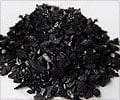The age-old stabilizing influence that land and ocean carbon sinks have on greenhouse gas emissions have thankfully sustained our planet for all these years. But now scientists at the international Copenhagen Climate Change Conference have determined that this natural control mechanism is slowly but surely, weakening.
"Forests, grasslands and oceans are absorbing carbon dioxide (CO2) from the atmosphere faster than ever but they are not keeping pace with rapidly rising emissions," said CSIRO scientist and co-Chair of the Global Carbon Project, Dr Mike Raupach."While these natural CO2 sinks are a huge buffer against climate change, which would occur about twice as fast without them, they cannot be taken for granted," he added.
According to Dr Raupach, concern about the vulnerability of carbon sinks is based on identifying several mechanisms that could cause the present stabilizing role of oceans and land to be weakened or even reversed.
"Forests, grasslands and oceans are absorbing carbon dioxide (CO2) from the atmosphere faster than ever but they are not keeping pace with rapidly rising emissions," said Dr Raupach.
"Such a change would have drastic consequences for the predicted magnitude or speed of climate change occurring and scientists will meet in Copenhagen to review and question the latest research from which advice can ultimately be provided to decision-makers," he added.
Changes in the carbon sink on land through shifts in atmospheric composition, temperature and rainfall changes, deforestation, fire frequency and insect attacks, can slow or reverse sinks or initiate sources of CO2 to the atmosphere.
Advertisement
TAN/L










